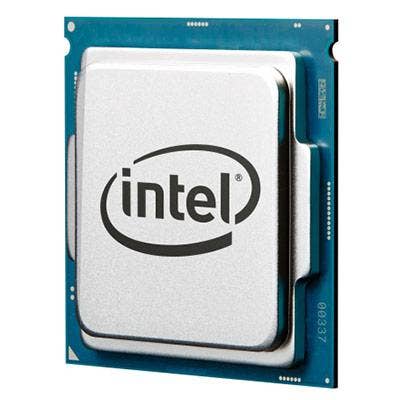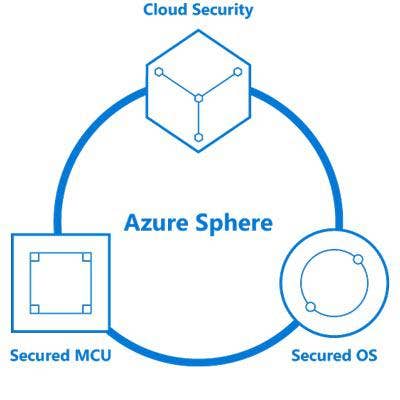5 Companies That Came To Win This Week

The Week Ending April 20
Topping this week's roundup of companies that came to win is Intel, which debuted new chip-level security technology designed to protect against sophisticated cyberattacks.
Also making the list this week are Recorded Future for its plan to rely on channel partners to help integrate its threat intelligence software with security software from other vendors, file and object storage system developer Scality for raising $60 million in a new round of financing, Microsoft for creating new IoT managed services opportunities for partners with its new Azure Sphere, and the Cloud Foundry Foundation for creating big data service opportunities for the channel.
Not everyone in the IT industry was making smart moves this week, of course. For a rundown of companies that were unfortunate, unsuccessful or just didn't make good decisions, check out this week's Five Companies That Had A Rough Week roundup.

Intel's New Chip-Level Security Tech Uses GPU Power, Machine Learning To Detect Threats
Having worked through the Spectre and Meltdown vulnerabilities crisis earlier this year, Intel wins applause this week for debuting the company's first hardware-level security features that protect against sophisticated cyberattacks.
The new Intel Threat Detection Technology, announced at this week's RSA Conference 2018, is a set of silicon-level security capabilities. They include Advanced Platform Telemetry, which uses machine learning algorithms to better detect advanced threats on corporate networks while mitigating performance hits and reducing false positives.
It includes a new advanced memory scanning capability that allows virus scanners to use Intel's integrated graphics processor, which in turn reduces CPU usage.
Intel also announced Intel Security Essentials, a new framework that aims to standardize built-in security features for the company's processors.
The announcements help fulfill a promise by CEO Brain Krzanich to build hardware-level security into Intel's CPUs. It also comes on the heels of the company's recent establishment of a Product Assurance and Security Group to take a more proactive approach against security threats.

Recorded Future Turns To The Channel To Help Build Integrations With Other Vendors
Recorded Future needs to integrate its threat intelligence technology with other vendors' security software. And the Somerville, Mass.-based company is relying on the channel to make that happen.
Recorded Future is growing its Connect Xchange technology partner program from 14 vendors today to 50 by the end of the year. But many of those vendors don't have the staff to build integrations with Recorded Future's software.
This week Recorded Future said it would rely on 10 of its solution provider partners, who have exceptional knowledge of Recorded Future's product and API, to help construct integrations between its product and other vendors' software for security operations, incident response and vulnerability management.
The solution providers could earn anywhere from $15,000 to $100,000 for the integration work, depending on the complexity of the project. They also have the opportunity to learn about both vendors' products and become a preferred provider.

Scality Snags $60 Million In Funding, Looks To Accelerate Technology Development
Scality, the developer of leading-edge file and object storage technology, scored big in the venture funding arena this week when it received an impressive $60 million in Series E funding.
With the new round of financing San Francisco-based Scality has raised a total of $152 million. The company plans to invest the funding primarily in further development of the company's technology, with some also going to expanding its sales and marketing efforts.
Scality partners with Hewlett Packard Enterprise and Cisco Systems in on-premises and cloud object storage environments.

Microsoft's Azure Sphere Will Spark Big IoT Security Opportunities For Partners
Microsoft this week unveiled Azure Sphere, an Internet of Things system that's designed to secure microcontroller unit (MCU) devices within IoT networks.
Launched at this week's RSA Conference 2018 Azure Sphere tackles IoT security using a new class of MCU chips with built-in security technology and connectivity, a Linux-based operating system with secured application containers and security monitor, and a cloud-based security service that provides certificate-based authentication and visibility into emerging threats.
With some 20 billion IoT devices expected to be connected by 2020, and 15 billion of those in the small microprocessor class, Microsoft is addressing what's expected to be an increasingly significant security problem.
The software is designed for manufacturers building MCU-class smart devices, but lack the means to develop their own security technology.
While Azure Sphere wins applause on its technology merits, the announcement also wins plaudits for the opportunities it's expected to create for Microsoft partners who have invested in the Azure platform. Partners can build out secure and compliant IoT managed services based on Azure Sphere.

Cloud Foundry Creating Massive Data Service Opportunities For Solution Providers
Speaking of creating channel opportunities, Cloud Foundry, the multi-cloud Platform-as-a-Service system run by the Cloud Foundry Foundation, wins kudos this week for the opportunities it's creating for solution providers looking to generate new recurring revenues through data services.
The Foundation is holding the Cloud Foundry Summit 2018 in Boston this week where the PaaS technology -- and its potential for the channel -- were on display.
The open source PaaS technology provides a quick and easy way for solution providers to deploy native cloud applications. The technology has become pervasive within many companies and is increasingly important for systems integrators.
The Cloud Foundry Foundation, which runs Cloud Foundry, is backed by some of the industry's biggest companies including Dell EMC, Pivotal, Google, IBM, Microsoft and SAP.